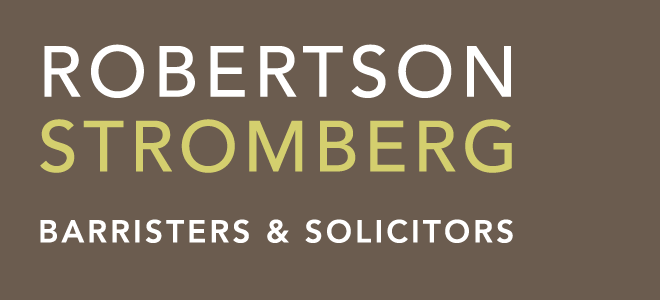The recent Saskatchewan decision in Nicklen Estate offers a reminder of the importance of making changes to your will while you still can. If you draft “notes to self” but postpone actual changes to your will, it may be too late.
Background
A will was executed by the deceased, Albert Edward Nicklen [Edward], on February 5, 2013. The Will was prepared by a lawyer, and the Will was valid.
However, there was also another, later document – a NAPA Auto Parts receipt. On the back of this receipt, Edward made some handwritten notes with respect to certain property.
The receipt states as follows:
I gave William Nicklen N.E. 1 52 15 W2 and give Ab Letkeman and Bev Seykora each $20,000 at little each year.
Sold CAT to Rodge the person I sold 830 John Deere to same person cash paid for $15,000 made the CAT. CAT not paid.
And gave my ½ share.
All on my will.
Albert Edward Nicklen:
Owner
The changes embodied by this receipt, if found valid by a Court, would impact the distribution of the Estate.
The executor named in the Will, Jeannette Wickstrom, gave evidence that on February 6, 2020, just ten days before Edward’s death, Edward showed her the receipt. At the bottom of the receipt, Jeannette wrote:
I Jeanette Wickstrom acknowledge that Albert Edward Nicklen showed me the changes that he wished to make to his Will on Feb 6, 2020. These changes are written on the back of this Napa receipt dated August 14 2019 in his own handwriting.
Although the Document contains Edward’s full name, it was printed but was not signed by him in cursive writing.
The issue was whether this was a valid codicil. Certain of the beneficiaries believed the handwritten document was a “codicil”, to be read hand‑in‑hand with the Will.
The other beneficiaries believed the NAPA receipt contained mere notes that were jotted down by Edward on a scrap piece of paper, as a reminder to himself of changes he wanted to make to his Will. But, they argued, Edward had crucially failed to make these changes before he died on February 16, 2020. Thus, the notes on the receipt were not testamentary in nature.
The Issue
The issue was whether the NAPA receipt was a valid testamentary document, and should be probated in conjunction with Edward’s Will?
Was this receipt testamentary in nature?
The court ultimately held that the receipt was not testamentary in nature.
The Court first explained that the document did meet the prerequisites to be considered a holograph will pursuant to s. 8 of the Act. This was because the notes on the receipt were in the handwriting of Edward. The Court held that even printed (not cursive) signatures could be held to be a “signature”.
However, a review of all circumstances suggested to the Court, that the receipt was not a final expression of Edward’s testamentary intentions. The Court observed that a document must contain more than a fleeting expression of how the individual wishes his or her property to be disposed of after death. The document must represent a fixed and final expression of intention in relation to the disposition of property.
Here, the Court held that the receipt was not a fixed and final expression of intention in relation to Edward’s disposition of property.
- Edward had previously always used professionals to handle his affairs – lawyers for his legal matters and accountants for his income taxes. It was out of character for him to make handwritten notes on receipt. The fact that Edward had attempted to contact a lawyer in relation to changes to his Will very shortly before he died, suggested that he wished to change his Will but did not ultimately do so before he died;
- Second, Edward would usually sign a document in cursive writing and would not just print his name. It was also unusual for him to write on a scrap of paper. Rather, Edward liked to write on lined paper and always had a pad of lined paper with him. These facts suggested the receipt contained mere notes to draft, not a true intention to make a codicil;
- Jeanette’s note, written on the receipt, refers to the receipt as “changes that [Edward] wished to make to his Will”. This statement was prospective in nature. It speaks of a future intention. Thus, Edward had not yet made such final changes;
- Further, Edward’s notations are unclear. He indicated in the receipt that he “gave” NE 01 to William, which speaks to the past. But then he also indicated that he “give[s]” $20,000 a little each year to Abe and Beverly, which speaks to the future. He referred to a piece of equipment that he had already sold but noted on the receipt that he was still owed money for that piece of equipment. The Court held the receipt was both prospective and retrospective and did not reflect a fixed testamentary intention.
As such, the Court allowed probate for the Will alone to proceed, but not for the receipt:
[58] At the end of the day, based upon my review of the Document and the extrinsic evidence presented to me, they have not satisfied that burden. I have concluded that Edward’s notes on the Document represented changes he intended to make but he died before his intention came to fruition. At best, the Document was a “note to self” prepared by Edward.
Lesson
If someone wishes to make a change to their will, they should move as quickly as possible to see a lawyer, and make formal changes. To do otherwise, and simply rely on handwritten notes, gives rise to two problems. First, even if the Court finds the notes testamentary in nature, the informal nature of the notes will likely give rise to expensive litigation, which diminishes and delays the Estate. Second, there is also the even worse possibility, that the Court will find the notes are not truly testamentary. In such cases, the notes (and any intentions expressed on them) will be ignored.
Related News and Articles
Saskatchewan Estate Litigation Update: Miller v Miller Estate, 2024 SKCA 70
The recent Saskatchewan Court of Appeal decision in Miller v Miller Estate, 2024 SKCA 70, confronted the issue of when a party, who seeks to appeal a decision made by a Chambers judge, first requires leave to appeal. For context, in order to appeal certain decisions...
Saskatchewan Estate Litigation Update: Walker v Hunter, 2024 SKCA 34
This post discusses the recent decision of the Court of Appeal for Saskatchewan in Walker v Hunter, 2024 SKCA 34. This decision offers an illustration of when a lawsuit may be struck out, on the basis that it is statute barred (i.e. commenced too late). Such a...
Protecting Estate Inheritances from Family Law Claims
This guest post was contributed by Curtis Clavelle. Curtis practices family law with Robertson Stromberg LLP. Most parents intend to leave at least a portion of their estates to their children. What some parents may not realize is that the inheritance they leave their...
Saskatchewan Estate Litigation Update: Riben Estate (Re), 2023 SKKB 72
The recent Saskatchewan Court of King’s Bench decision in Riben Estate (Re), 2023 SKKB 72 offers a reminder that a will challenger who alleges coercion must offer direct evidence to actually prove that pressure resulted in the creation of the challenged will. If they...
Saskatchewan Estate Litigation Update: Bell v Bell, 2023 SKCA 53
The recent Saskatchewan Court of Appeal decision in Bell v Bell, 2023 SKCA 53 upheld a Court of Queen’s Bench decision, in which a Chambers Judge had dismissed a will challenge.Factual background: In his application in Queen’s Bench, Wayne Bell had challenged the will...
Saskatchewan Estate Litigation Update: Vaudreuil v Madson, 2023 SKKB 19
The recent Saskatchewan King’s Bench decision in Vaudreuil v Madson is an example of a testamentary document in which a trial was required to determine its validity. This was because of contradictory evidence which had been adduced as to require findings of...

